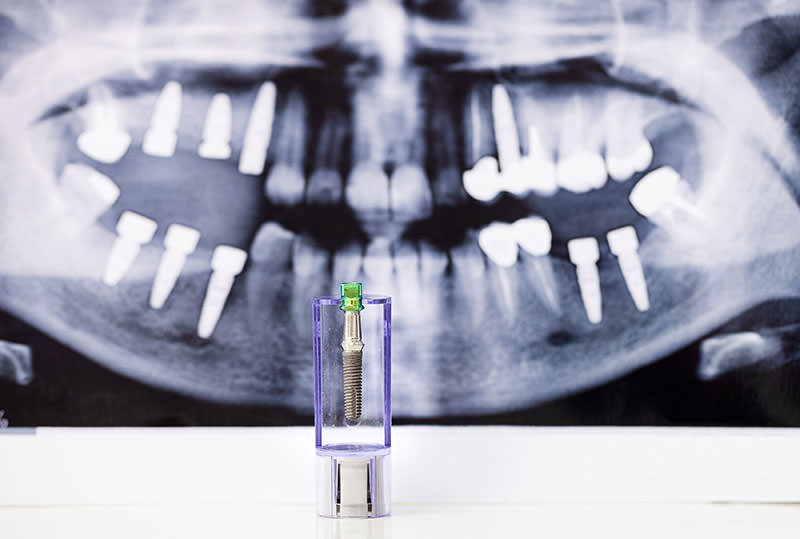
What to Expect During Dental Implant Procedure
If you’re thinking about getting a dental implant or have already started the process, you probably have a lot of questions. To have a procedure on your mouth might sound frightening, but it doesn’t need to be. We’re here to answer any of your questions, and ease your anxiety about the surgery:
How Long Does a Dental Implant Procedure Take?
The length of your surgery will depend on a variety of factors, such as your current dental and oral health if you need a tooth extracted before the implant and the number of teeth and implants involved. The extent of the procedure will also determine how many times you’ll need to visit the oral surgeon throughout the process.
A single-tooth implant might only take one or two hours from start to finish, but if your oral surgeon needs to place multiple dental implants with possible need for bone grafting, it could take longer.
Keep in mind that, with pre-surgery visits, the procedure itself, and recovery and healing time after the procedure, from start to finish where you can get a crown on your implant could take about 3-6 months.
The Process of Your Dental Implant Step-by-Step
Your oral surgeon will typically complete the dental implant process in two stages. Typically the surgical portion of the implant placement (Extraction and bone grafting if needed) are done by your oral surgeon. After about 3-6 months of healing, the crown (tooth) portion of the implant will be completed by your general dentist.
The first phase includes the pre-operative prep and the surgery itself. Generally, dental implants are done in the dentist office under local anesthesia, light sedation or IV sedation. Here’s a step-by-step guide to the first phase of dental implant surgery:
- Your oral surgeon will numb your mouth, and begin surgically placing the implant.
- To expose the bone underneath, a surgical incision will be made in your gums.
- Then, your oral surgeon will use a specialized, quiet drill to create a spot for the implant in the exposed bone.
- Once space is cleared, the implant is carefully placed within the bone (having good quality and quantity of bone is crucial for this portion).
- After the implant is in its spot, a second component is added to the implant and will remain there during the recovery process
- With one or two stitches, the gums are closed over or around the implant.
- Throughout the following months, the implant will attach and heal itself to the bone in a process called osseointegration. This healing phase can take from 3-6 months.
After the first phase, you’ll go home, and begin healing while your implant(s) complete osseointegration. This can take a few months, and you will most likely be on a soft food diet during the first few weeks. If you choose, your general dentist may even place a few temporary teeth during this period, particularly if it’s your anterior teeth.
The second phase of your dental implant procedure is the last phase, and covers the final procedure and the placement of your new crown:
- Your oral surgeon will re-expose the implant (if needed), either by making a small incision or using a separate component placed above the gums.
- Then, a tiny extension, referred to as the abutment, is put on the implant. The abutment is later used to fit a new crown.
- Afterward, you’ll have multiple appointments with your general dentist to construct your new crown on top of your well-healed implant.
Are Dental Implant Procedures Painful?
During the actual procedure, your oral surgeon will numb your mouth with local anesthesia so that you don’t feel a thing. That being said, you should expect some post-op discomfort, pain, and some swelling after both phases, but it’s usually short-lived and relieved with pain medication provided by your surgeon.
Depending on the severity of your dental implant procedure, you may only need to take ibuprofen for post-operative discomfort. However, in other cases, your oral surgeon might prescribe a stronger pain-killer to manage your discomfort.
It’s likely that you’ll be able to return to your normal activities by the following day, or within the span of a few days.
Dental Implant Recovery Process
Luckily, the recovery process for dental implants is fairly simple. In general, besides some minor pain and discomfort, your oral surgeon will also put you on a soft-food diet for at least a couple of weeks. If they believe an infection could be a risk, your surgeon might also prescribe an antibiotic for you to take.
Throughout the following months, you’ll need to follow-up with your oral surgeon to make sure there’s no infection, your implant has not failed to adhere to the bone, and you’re healing as you should be.
Your surgeon will also include specific instructions for brushing and flossing your implant and good oral hygiene. It’s important to follow these instructions closely so that you can lower the possibility of infection and recover quicker.
Dental Implant Cost: How Much Will It Cost You?
Since each patient has different implant needs and will need their own unique treatment plan, estimating the cost of your implant can be variable. Keep in mind that, unlike some other tooth replacement alternatives, implants are customized to your teeth, mouth, and jaw.
Estimates for the cost of a dental implant are usually within $1500 to $4,000 per implant.
There can be exceptions to this, depending on the severity of your case, your dental insurance, etc. We offer discounts to most patients and financing options if needed. And we beat any other prices in the region.
Be wary of dentists who try to quote you a price before they’ve examined you. When it comes to dental implants, there is rarely a one-price-fits-all approach. In the same vein, dentists who offer implants at prices that seem too good to be true are often just that. And make sure your surgeon is a well-trained specialist in implant dentistry.
If you don’t already know, it’s a good idea to ask your dental insurance company whether or not they cover dental implants. Some policies might not, but other plans might offer partial or full coverage—making your out-of-pocket expenses much cheaper.
If you’re interested in a dental implant procedure or just want to find out more about them, it might be time to schedule an appointment with Dr. Eftekhari at NextGen.
We know how stressful dental surgery can be, and we’re ready to answer any questions or concerns you might have.


